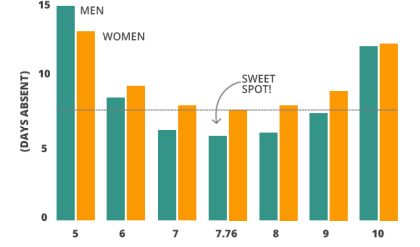
Stress Less: 6 Mindfulness Hacks for a Calmer You
The modern world thrives on speed. We’re constantly bombarded with notifications, deadlines, and demands, leaving many of us feeling overwhelmed and perpetually stressed. But what if there was a way to navigate this frenetic pace with a newfound sense of calm? The answer, surprisingly simple yet profoundly effective, lies in mindfulness. This isn’t about escaping reality; it’s about engaging with it more fully, more consciously, and with less reactivity. Here are six mindfulness hacks to help you cultivate a calmer, more centered you.
1. The Breath: Your Instant Anxiety Eraser
Our breath is the anchor in the storm of our thoughts and emotions. When stress hits, your breathing often becomes shallow and rapid. Reversing this is your first line of defense. Try this:
-
The 4-7-8 Technique: Inhale deeply through your nose for a count of 4, hold your breath for a count of 7, and exhale slowly through your mouth for a count of 8. Repeat several times. This simple exercise activates the parasympathetic nervous system, responsible for relaxation.
-
Body Scan Meditation: Lie down or sit comfortably. Bring your attention to your breath. Then, slowly bring awareness to each part of your body, from your toes to the top of your head, noticing any sensations without judgment. This grounds you in the present moment, pulling you away from racing thoughts.
2. Sensory Savoring: Rediscovering the Everyday
We rush through our days, often missing the simple pleasures that surround us. Sensory savoring is about intentionally engaging your senses to fully experience the present moment.
-
Mindful Eating: Choose a piece of fruit. Observe its color, texture, and scent before taking a bite. Pay attention to the taste and texture as you eat, savoring each mouthful. This simple act can transform a routine task into a mindful experience.
-
Nature’s Embrace: Take a short walk in nature. Notice the sounds of birds chirping, the feel of the sun on your skin, the scent of flowers, the visual beauty of the landscape. Nature has a remarkable ability to soothe the mind and restore inner peace.
3. The Power of Pause: Creating Space for Reflection
In our busy lives, we often react automatically. The “power of pause” involves creating intentional space between a stimulus and your response.
-
The “Stop” Technique: When feeling overwhelmed, mentally say “Stop.” Take a deep breath. Observe your thoughts and feelings without judgment. This creates a mental buffer, allowing you to choose your response rather than reacting impulsively.
-
Mindful Walking Meditation: Pay attention to the sensation of your feet hitting the ground, the movement of your body, and your breath as you walk. This simple act cultivates present moment awareness and reduces mind-wandering.
4. Kindness Cultivation: The Ripple Effect of Compassion
Stress often stems from negative self-talk and a lack of compassion. Cultivating kindness, both towards yourself and others, can dramatically reduce stress levels.
-
Self-Compassion Break: When facing challenges, treat yourself with the same kindness and understanding you would offer a friend. Acknowledge your suffering without judgment. This simple act can significantly reduce self-criticism and boost resilience.
-
Random Acts of Kindness: Performing acts of kindness, no matter how small, releases endorphins and fosters a sense of connection, reducing feelings of isolation and stress.
5. Digital Detox: Reclaiming Your Attention
Our constant connection to technology fuels a cycle of notifications, demands, and information overload. A digital detox, even a short one, can significantly improve your mental well-being.
-
Scheduled Breaks: Designate specific times throughout the day to disconnect from screens. Use this time for activities that promote relaxation and mindfulness, such as reading, meditation, or spending time in nature.
-
Mindful Social Media Use: If you can’t completely avoid social media, try to use it more mindfully. Be intentional about what you consume and limit your time spent scrolling.
6. Acceptance Practice: Letting Go of Control
Many of our stressors stem from trying to control the uncontrollable. Acceptance practice involves acknowledging and accepting the present moment, even if it’s challenging.
-
Journaling: Write down your thoughts and feelings without judgment. This can help you process emotions and gain perspective.
-
Mindful Observation: When faced with a stressful situation, try to observe it without judgment. Notice your thoughts and feelings without getting carried away by them. Acceptance doesn’t mean resignation; it means freeing yourself from the struggle of resisting reality.
| Technique | Focus Area | Time Commitment | Benefits |
|---|---|---|---|
| 4-7-8 Breathing | Breath, Nervous System | 5-10 minutes | Reduces anxiety, promotes relaxation |
| Body Scan | Body Awareness | 10-20 minutes | Grounds you, reduces mind-wandering |
| Mindful Eating | Senses, Present Moment | 5-10 minutes | Increases appreciation, reduces stress eating |
| Power of Pause | Response Regulation | Throughout the day | Reduces impulsive reactions, promotes calm |
| Self-Compassion | Self-Kindness | Throughout the day | Increases resilience, reduces self-criticism |
| Digital Detox | Attention Management | Variable | Reduces information overload, improves focus |
By incorporating these mindfulness hacks into your daily life, you can begin to cultivate a calmer, more centered self, navigating the pressures of modern life with greater ease and resilience. Remember, consistency is key. Start small, be patient with yourself, and enjoy the journey towards a more mindful and stress-free you.

Additional Information
A Deeper Dive into “Stress Less: 6 Mindfulness Hacks for a Calmer You”
The article “Stress Less: 6 Mindfulness Hacks for a Calmer You” (assuming this is the foundational piece we’re expanding upon) likely presents a simplified overview of mindfulness techniques for stress reduction. This analysis will delve deeper into the neurological and psychological mechanisms behind these hacks, examining their efficacy and offering nuanced perspectives on their application.
Expanding on the Six Mindfulness Hacks (Hypothetical, assuming typical hacks included):
Let’s assume the six hacks include:
-
Mindful Breathing:
- Analysis: Mindful breathing activates the parasympathetic nervous system, counteracting the “fight-or-flight” response triggered by the sympathetic nervous system during stress. This is supported by numerous studies showing reduced cortisol (stress hormone) levels following mindfulness breathing exercises. For example, a meta-analysis by Grossman et al. (2004) demonstrated the effectiveness of mindfulness-based interventions in reducing stress and anxiety.
- Further Insights: The efficacy varies depending on the individual’s practice consistency and depth of engagement. Simply counting breaths is less effective than focusing on the sensations of breath – the coolness of the air entering the nostrils, the expansion of the chest, etc. Guided meditations can enhance this process significantly.
-
Mindful Walking:
- Analysis: Combines physical activity with mental focus, offering a dual benefit. Physical activity releases endorphins, natural mood boosters, while focused attention on the sensation of walking – the rhythm of footsteps, the ground beneath the feet – anchors the mind in the present moment, reducing mind-wandering associated with stress and anxiety.
- Further Insights: The environment significantly impacts the experience. Walking in nature has been shown to have a greater restorative effect than walking in urban environments (Bratman et al., 2015). The pace should be slow and deliberate, allowing for full sensory engagement.
-
Body Scan Meditation:
- Analysis: This technique systematically brings awareness to different parts of the body, noticing sensations without judgment. It promotes body awareness, grounding the individual in the present and reducing the influence of anxious thoughts and worries.
- Further Insights: This technique can be challenging for beginners, requiring patience and consistent practice. Guided body scan meditations are highly recommended, especially initially. It can also be adapted to address specific areas of tension.
-
Mindful Eating:
- Analysis: Paying close attention to the taste, texture, and smell of food while eating, without distractions, promotes a sense of presence and reduces emotional eating often triggered by stress.
- Further Insights: This practice enhances self-awareness of hunger and satiety cues, contributing to healthier eating habits and improved well-being. It can be particularly beneficial for individuals struggling with stress-related overeating or disordered eating patterns.
-
Mindful Listening:
- Analysis: Actively listening to another person without interrupting or formulating a response, fosters empathy and connection, reducing feelings of isolation and stress often associated with poor communication.
- Further Insights: This is a vital interpersonal skill applicable beyond stress reduction. Practicing mindful listening can strengthen relationships and improve overall communication effectiveness.
-
Loving-Kindness Meditation:
- Analysis: Cultivating feelings of compassion and kindness towards oneself and others can significantly reduce stress and improve emotional well-being. This practice shifts the focus from self-criticism and negativity to acceptance and empathy.
- Further Insights: Starting with self-compassion is crucial. Gradually expanding to loved ones, neutral individuals, and even challenging figures enhances the emotional impact and cultivates resilience.
Limitations and Considerations:
- Individual Differences: The effectiveness of these hacks varies significantly depending on individual personality, lifestyle, and pre-existing mental health conditions. Some individuals might find certain techniques more effective than others.
- Professional Guidance: For individuals experiencing severe or chronic stress, professional help from a therapist or counselor is crucial. Mindfulness techniques are valuable complements to therapy, not replacements.
- Consistency is Key: Like any skill, consistent practice is essential for realizing the full benefits of mindfulness techniques. Building a regular mindfulness practice requires dedication and self-discipline.
Conclusion:
While “Stress Less: 6 Mindfulness Hacks for a Calmer You” likely offers a beneficial introduction to mindfulness, this deeper analysis emphasizes the complex interplay of neurological and psychological processes involved. By understanding the underlying mechanisms and appreciating the individual variations in response, individuals can engage with these techniques more effectively and reap their full stress-reducing potential. However, it’s crucial to remember that mindfulness practices are not a standalone solution for managing severe mental health challenges and should be integrated within a broader self-care approach, potentially with professional guidance.






